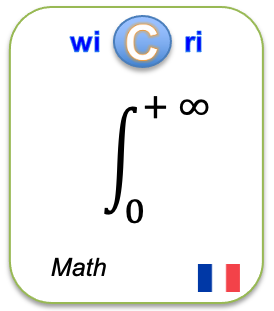On sets X \subseteq \mathbb{N} for which we know an algorithm that computes a threshold number t(X) \in \mathbb{N} such that X is infinite if and only if X contains an element greater than t(X)
Identifieur interne : 000000 ( Main/Exploration ); suivant : 000001On sets X \subseteq \mathbb{N} for which we know an algorithm that computes a threshold number t(X) \in \mathbb{N} such that X is infinite if and only if X contains an element greater than t(X)
Auteurs : Apoloniusz Tyszka [Pologne]Source :
English descriptors
- mix :
Abstract
Let Γ_{n}(k) denote (k−1)!, where n∈{3,…,16} and k∈{2}∪{2^{2^{n−3}}+1, 2^{2^{n−3}}+2, 2^{2^{n−3}}+3,…}. For an integer n∈{3,…,16}, let Σ_n denote the following statement: if a system of equations S⊆{Γ_{n}(x_i)=x_k: i,k∈{1,…,n}}∪{x_i⋅x_j=x_k: i,j,k∈{1,…,n}} has only finitely many solutions in positive integers x_1,…,x_n, then each such solution (x_1,…,x_n) satisfies x_1,…,x_n⩽2^{2^{n−2}}. The statement Σ_6 proves the following implication: if the equation x(x+1)=y! has only finitely many solutions in positive integers x and y, then each such solution (x,y) belongs to the set {(1,2),(2,3)}. The statement Σ_6 proves the following implication: if the equation x!+1=y^2 has only finitely many solutions in positive integers x and y, then each such solution (x,y) belongs to the set {(4,5),(5,11),(7,71)}. The statement Σ_9 implies the infinitude of primes of the form n^2+1. The statement Σ_9 implies that any prime of the form n!+1 with n⩾2^{2^{9−3}} proves the infinitude of primes of the form n!+1. The statement Σ_{14} implies the infinitude of twin primes. The statement Σ_{16} implies the infinitude of Sophie Germain primes. We formulate a hypothesis which implies the infinitude of Wilson primes.
Url:
Affiliations:
Links toward previous steps (curation, corpus...)
- to stream Hal, to step Corpus: 000001
- to stream Hal, to step Curation: 000001
- to stream Hal, to step Checkpoint: 000000
- to stream Main, to step Merge: 000000
- to stream Main, to step Curation: 000000
Le document en format XML
<record><TEI><teiHeader><fileDesc><titleStmt><title xml:lang="en">On sets X \subseteq \mathbb{N} for which we know an algorithm that computes a threshold number t(X) \in \mathbb{N} such that X is infinite if and only if X contains an element greater than t(X)</title><author><name sortKey="Tyszka, Apoloniusz" sort="Tyszka, Apoloniusz" uniqKey="Tyszka A" first="Apoloniusz" last="Tyszka">Apoloniusz Tyszka</name><affiliation wicri:level="1"><hal:affiliation type="institution" xml:id="struct-522738" status="INCOMING"> <orgName>University of Agriculture in Krakow</orgName> <desc> <address> <addrLine>Al. Mickiewicza 21 31-120 Krakow</addrLine> <country key="PL"></country> </address> </desc> </hal:affiliation><country>Pologne</country></affiliation></author></titleStmt><publicationStmt><idno type="wicri:source">HAL</idno><idno type="RBID">Hal:hal-01614087</idno><idno type="halId">hal-01614087</idno><idno type="halUri">https://hal.archives-ouvertes.fr/hal-01614087</idno><idno type="url">https://hal.archives-ouvertes.fr/hal-01614087</idno><date when="2019-01-08">2019-01-08</date><idno type="wicri:Area/Hal/Corpus">000001</idno><idno type="wicri:Area/Hal/Curation">000001</idno><idno type="wicri:Area/Hal/Checkpoint">000000</idno><idno type="wicri:explorRef" wicri:stream="Hal" wicri:step="Checkpoint">000000</idno><idno type="wicri:Area/Main/Merge">000000</idno><idno type="wicri:Area/Main/Curation">000000</idno><idno type="wicri:Area/Main/Exploration">000000</idno></publicationStmt><sourceDesc><biblStruct><analytic><title xml:lang="en">On sets X \subseteq \mathbb{N} for which we know an algorithm that computes a threshold number t(X) \in \mathbb{N} such that X is infinite if and only if X contains an element greater than t(X)</title><author><name sortKey="Tyszka, Apoloniusz" sort="Tyszka, Apoloniusz" uniqKey="Tyszka A" first="Apoloniusz" last="Tyszka">Apoloniusz Tyszka</name><affiliation wicri:level="1"><hal:affiliation type="institution" xml:id="struct-522738" status="INCOMING"> <orgName>University of Agriculture in Krakow</orgName> <desc> <address> <addrLine>Al. Mickiewicza 21 31-120 Krakow</addrLine> <country key="PL"></country> </address> </desc> </hal:affiliation><country>Pologne</country></affiliation></author></analytic></biblStruct></sourceDesc></fileDesc><profileDesc><textClass><keywords scheme="mix" xml:lang="en"><term>Brocard's problem</term><term>Brocard-Ramanujan equation x!+1=y^2</term><term>Erdos' equation x(x+1)=y!</term><term>Richert's lemma</term><term>Sophie Germain primes</term><term>Wilson primes</term><term>composite Fermat numbers</term><term>prime numbers of the form n!+1</term><term>prime numbers of the form n^2+1</term><term>twin prime conjecture</term></keywords></textClass></profileDesc></teiHeader><front><div type="abstract" xml:lang="en">Let Γ_{n}(k) denote (k−1)!, where n∈{3,…,16} and k∈{2}∪{2^{2^{n−3}}+1, 2^{2^{n−3}}+2, 2^{2^{n−3}}+3,…}. For an integer n∈{3,…,16}, let Σ_n denote the following statement: if a system of equations S⊆{Γ_{n}(x_i)=x_k: i,k∈{1,…,n}}∪{x_i⋅x_j=x_k: i,j,k∈{1,…,n}} has only finitely many solutions in positive integers x_1,…,x_n, then each such solution (x_1,…,x_n) satisfies x_1,…,x_n⩽2^{2^{n−2}}. The statement Σ_6 proves the following implication: if the equation x(x+1)=y! has only finitely many solutions in positive integers x and y, then each such solution (x,y) belongs to the set {(1,2),(2,3)}. The statement Σ_6 proves the following implication: if the equation x!+1=y^2 has only finitely many solutions in positive integers x and y, then each such solution (x,y) belongs to the set {(4,5),(5,11),(7,71)}. The statement Σ_9 implies the infinitude of primes of the form n^2+1. The statement Σ_9 implies that any prime of the form n!+1 with n⩾2^{2^{9−3}} proves the infinitude of primes of the form n!+1. The statement Σ_{14} implies the infinitude of twin primes. The statement Σ_{16} implies the infinitude of Sophie Germain primes. We formulate a hypothesis which implies the infinitude of Wilson primes.</div></front></TEI><affiliations><list><country><li>Pologne</li></country></list><tree><country name="Pologne"><noRegion><name sortKey="Tyszka, Apoloniusz" sort="Tyszka, Apoloniusz" uniqKey="Tyszka A" first="Apoloniusz" last="Tyszka">Apoloniusz Tyszka</name></noRegion></country></tree></affiliations></record>Pour manipuler ce document sous Unix (Dilib)
EXPLOR_STEP=$WICRI_ROOT/Wicri/Mathematiques/explor/SophieGermainV1/Data/Main/Exploration
HfdSelect -h $EXPLOR_STEP/biblio.hfd -nk 000000 | SxmlIndent | more
Ou
HfdSelect -h $EXPLOR_AREA/Data/Main/Exploration/biblio.hfd -nk 000000 | SxmlIndent | more
Pour mettre un lien sur cette page dans le réseau Wicri
{{Explor lien
|wiki= Wicri/Mathematiques
|area= SophieGermainV1
|flux= Main
|étape= Exploration
|type= RBID
|clé= Hal:hal-01614087
|texte= On sets X \subseteq \mathbb{N} for which we know an algorithm that computes a threshold number t(X) \in \mathbb{N} such that X is infinite if and only if X contains an element greater than t(X)
}}
|
| This area was generated with Dilib version V0.6.33. | |

